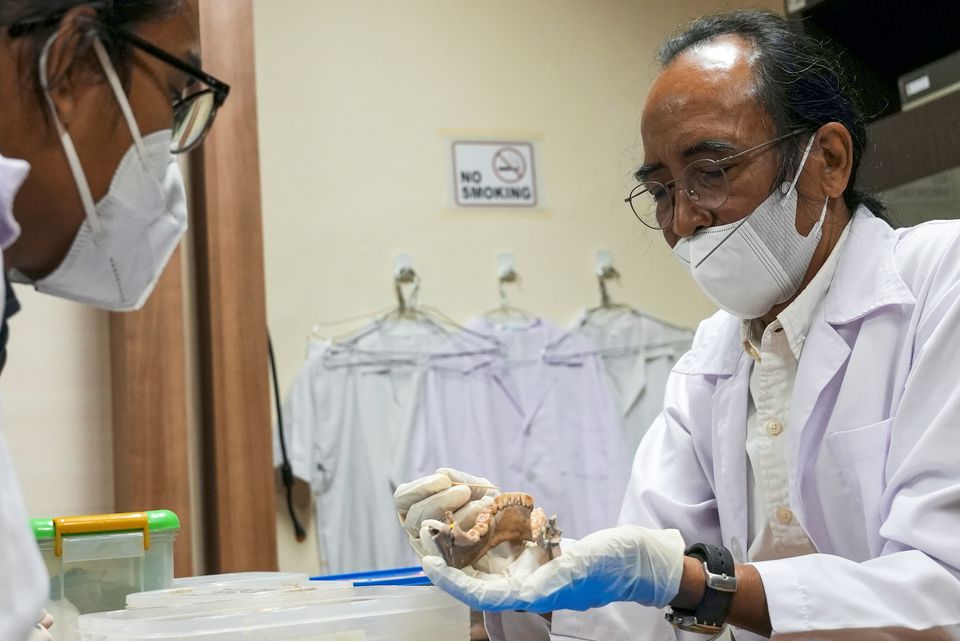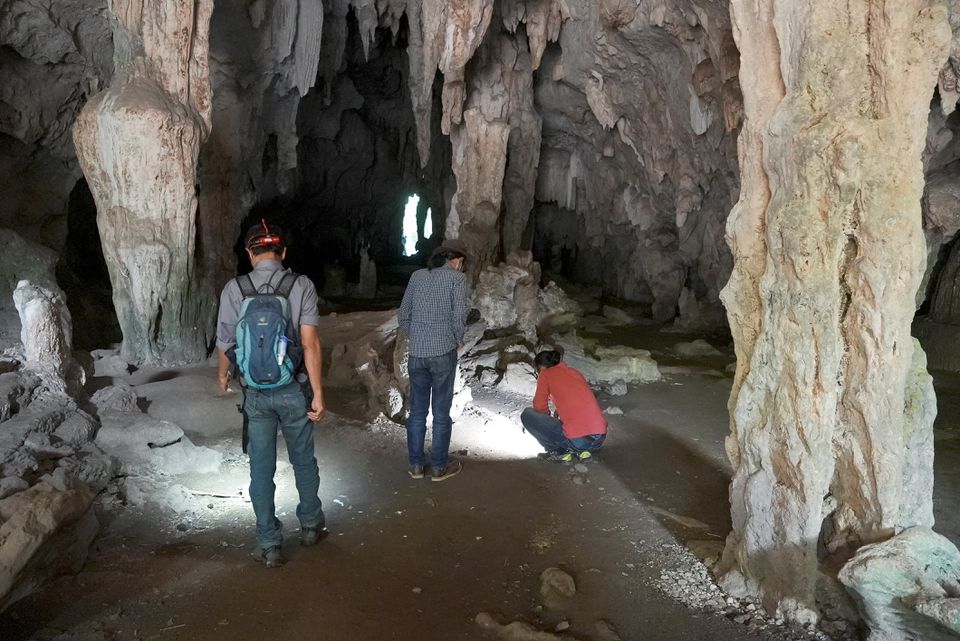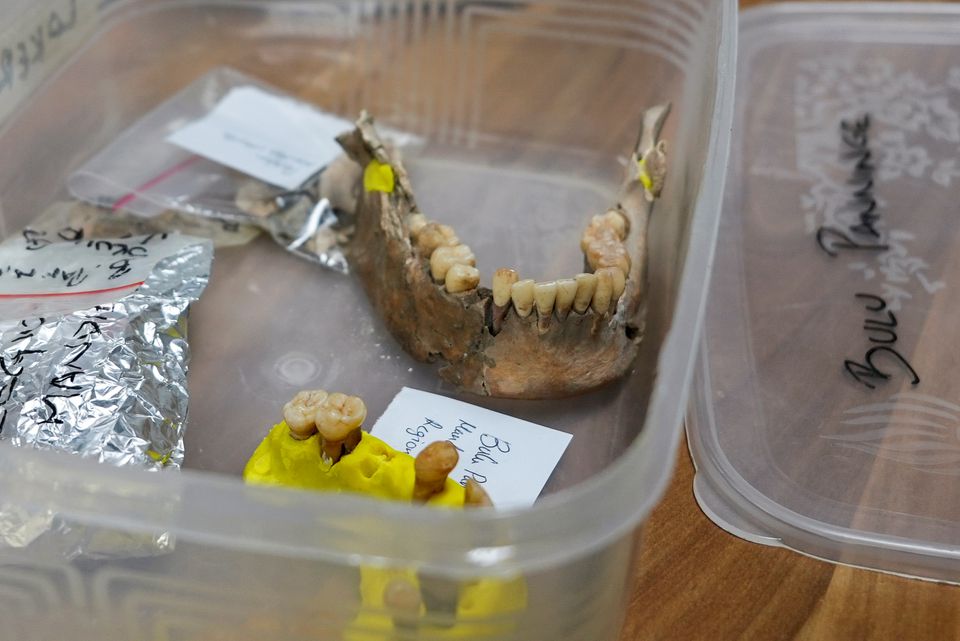MAROS, Indonesia -- Genetic traces in the body of a young woman who died 7,000 years ago furnish the first clue that mixing between early humans in Indonesia and those from faraway Siberia took place much earlier than previously thought.
Theories about early human migration in Asia could be transformed by the research published in the scientific journal Nature in August, after analysis of the deoxyribonucleic acid (DNA), or the genetic fingerprint, of the woman who was given a ritual burial in an Indonesian cave.
"There is the possibility that the Wallacea region could have been a meeting point of two human species, between the Denisovans and early homo sapiens," said Basran Burhan, an archaeologist from Australia's Griffith University.
Burhan, one of the scientists who participated in the research, was referring to the region of Indonesia that includes South Sulawesi, where the body, buried with rocks in its hands and on the pelvis, was found in the Leang Pannige cave complexes.
The Denisovans were a group of ancient humans named after a cave in Siberia where their remains were first identified in 2010 and scientists understand little about them, even details of their appearance.
|
|
| Archaelogists from Hasanuddin University, Griffith University and Cultural Heritage Preservation Center (BPCB) visit the Leang Panninge cave during a research for ancient stones in the Mallawa district of Maros regency, South Sulawesi province, Indonesia, September 19, 2021. Photo: Reuters |
The DNA from Besse, as the researchers named the young woman in Indonesia, using the term for a new born baby girl in the regional Bugis language, is one of the few well-preserved specimens found in the tropics.
It showed she descended from the Austronesian people common to Southeast Asia and Oceania but with the inclusion of a small Denisovan portion, the scientists said.
"Genetic analyses show that this pre-Neolithic forager... represents a previously unknown divergent human lineage," they said in the paper.
Since scientists have until recently thought North Asian people such as the Denisovans only arrived in Southeast Asia about 3,500 years ago, Besse's DNA changes theories about patterns of early human migration.
|
|
| Parts of Besse's ancient skeleton that was unearthed from Leang Paningge cave are pictured inside a box at the archaeological laboratory of Hasanuddin University in Makassar, South Sulawesi province, Indonesia, September 18, 2021. Photo: Reuters |
The discovery may also offer insights into the origins of Papuans and Indigenous Australian people who share Denisovan DNA.
"Theories about migration will change, as theories about race will also change," said Iwan Sumantri, a lecturer at Hasanuddin University in South Sulawesi, who is also involved in the project.
Besse's remains provide the first sign of Denisovans among Austronesians, who are Indonesia's oldest ethnic grouping, he added.
"Now try to imagine how they spread and distributed their genes for it to reach Indonesia," Sumantri said.




















































